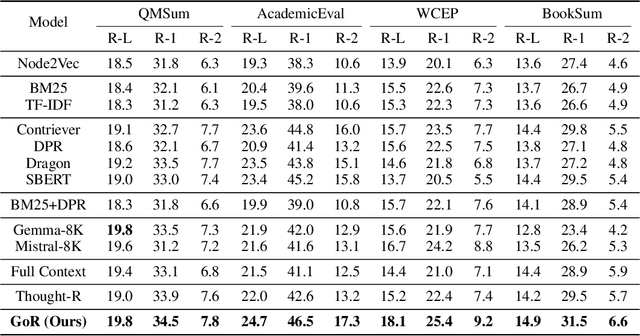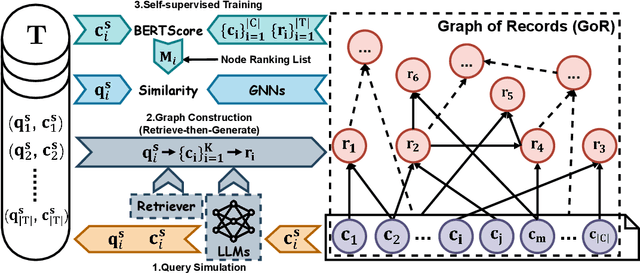Graph of Records: Boosting Retrieval Augmented Generation for Long-context Summarization with Graphs
Paper and Code
Oct 14, 2024



Retrieval-augmented generation (RAG) has revitalized Large Language Models (LLMs) by injecting non-parametric factual knowledge. Compared with long-context LLMs, RAG is considered an effective summarization tool in a more concise and lightweight manner, which can interact with LLMs multiple times using diverse queries to get comprehensive responses. However, the LLM-generated historical responses, which contain potentially insightful information, are largely neglected and discarded by existing approaches, leading to suboptimal results. In this paper, we propose \textit{graph of records} (\textbf{GoR}), which leverages historical responses generated by LLMs to enhance RAG for long-context global summarization. Inspired by the \textit{retrieve-then-generate} paradigm of RAG, we construct a graph by establishing an edge between the retrieved text chunks and the corresponding LLM-generated response. To further uncover the intricate correlations between them, GoR further features a \textit{graph neural network} and an elaborately designed \textit{BERTScore}-based objective for self-supervised model training, enabling seamless supervision signal backpropagation between reference summaries and node embeddings. We comprehensively compare GoR with 12 baselines across four long-context summarization datasets, and the results indicate that our proposed method reaches the best performance e.g., 15\%, 8\%, and 19\% improvement over retrievers w.r.t. Rouge-L, Rouge-1, and Rouge-2 on the WCEP dataset). Extensive experiments further demonstrate the effectiveness of GoR. Code is available at https://github.com/ulab-uiuc/GoR
 Add to Chrome
Add to Chrome Add to Firefox
Add to Firefox Add to Edge
Add to Edge